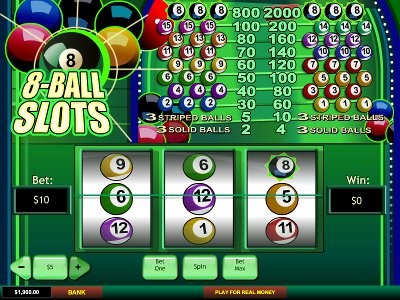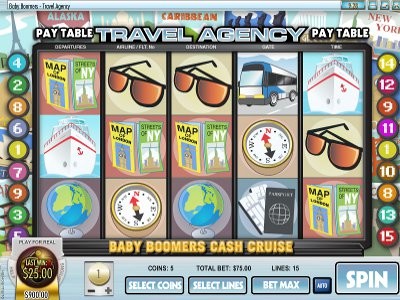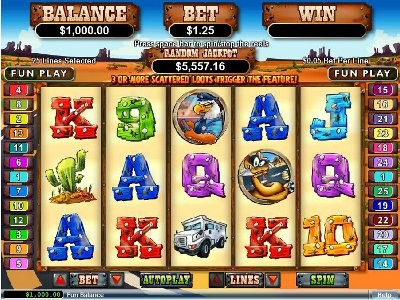Casino technical audit reports
A thorough examination of casino technical audit reports is crucial for ensuring compliance and operational integrity. These reports serve as an assessment of the systems and technologies in place, identifying potential risks and suggesting improvements. Engaging with these documents not only enhances transparency but also fosters trust among players and regulators alike.
Technical audits delve into various aspects of casino operations, including software reliability, security protocols, and financial processes. Implementing recommendations from these audits can significantly mitigate risks associated with data breaches and financial discrepancies. As a casino operator, prioritizing the findings from these audits allows you to create a safer and more responsible gaming environment.
Regular technical audits also highlight areas for technological upgrades, ensuring that your systems remain competitive and secure. By acting upon the insights provided in these reports, casinos can streamline their operations and enhance user experience. Staying proactive in this regard positions your establishment as a leader in industry standards and best practices.
What Key Metrics Are Assessed in Casino Technical Audit Reports?
Casino technical audit reports assess specific metrics that provide insights into the operational integrity and fairness of gaming activities. Key areas evaluated include:
- Random Number Generation (RNG): Auditors verify the algorithms ensuring randomness in game outcomes. Regular testing guarantees compliance with industry standards.
- Payout Percentages: The audit analyzes payout ratios across various games. This metric indicates the average return to players and confirms fairness.
- Internal Controls: The effectiveness of internal controls relating to operations, financial transactions, and data security is scrutinized. This safeguards against fraud and mismanagement.
- Compliance with Regulatory Standards: Auditors check adherence to local and international regulations. This includes licensing requirements and responsible gaming practices.
- Game Fairness: Each game is tested for fairness and transparency, ensuring that players have equitable chances of winning.
Identifying discrepancies in these areas allows for immediate corrective actions, enhancing player trust and operational efficiency.
How to Interpret the Findings of a Casino Technical Audit?
Begin by categorizing the findings into key areas: compliance, security, user experience, and system performance. Each category holds specific implications for operations.
For compliance issues, review the recommendations to ensure they align with gaming regulations and industry standards. Identify critical areas requiring immediate attention and evidence of corrective actions taken.
In security assessments, focus on vulnerabilities highlighted in the report. Prioritize those with the highest risk levels. Implement necessary measures to protect sensitive data and enhance overall security protocols.
User experience evaluations often contain feedback on navigation, accessibility, and interface design. Take this feedback seriously, as it directly impacts player satisfaction and retention. Address usability concerns to create a more engaging environment.
Examine system performance metrics such as uptime, load times, and server response. These statistics help pinpoint potential bottlenecks and areas for technical improvements. Regular monitoring and maintenance can significantly enhance system reliability.
Finally, engage with auditors for clarification on findings. Their insights can provide deeper understanding and assist in developing a robust action plan. Maintain open communication to ensure alignment on goals and expectations.
What Compliance Standards Must Casinos Meet During Audits?
Casinos must adhere to rigorous compliance standards during audits to ensure fair play and safeguard player interests. One primary standard is the requirement for licensing from authoritative gaming bodies. This involves submitting documentation that demonstrates financial stability, responsible gaming measures, and protection of player information.
Another critical standard is adherence to anti-money laundering (AML) regulations. Casinos must implement robust processes to identify and report suspicious activities. This includes customer due diligence, transaction monitoring, and employee training to recognize potential money laundering activities.
Furthermore, casinos are required to follow technical standards set by regulatory authorities. This includes ensuring the integrity of gaming systems through regular testing and certification by independent testing laboratories. Games must provide random outcomes and meet standards for return-to-player rates, ensuring transparency and fairness.
Data protection laws also play a vital role in compliance. Casinos need to ensure proper handling and storage of personal data in line with regulations like the General Data Protection Regulation (GDPR) in Europe. They must obtain consent for data collection and ensure that players can access and delete their information upon request.
Additionally, responsible gaming initiatives are integral to compliance. Casinos should establish protocols to promote responsible gambling behaviors. This encompasses providing resources for problem gambling, implementing self-exclusion options, and fostering a culture that prioritizes player safety.
Finally, regular internal audits and assessments are necessary to maintain compliance standards. These audits help identify areas for improvement and ensure that the casino remains aligned with regulatory requirements. By adhering to these compliance standards, casinos protect themselves and their players, fostering trust and integrity in the gaming industry.
How Often Should Casinos Conduct Technical Audits?
Casinos should conduct technical audits at least once a year. This frequency allows for consistent evaluation of systems and processes, ensuring compliance with regulatory standards. Additionally, many jurisdictions require annual audits to maintain licenses.
Casinos that introduce major system changes, updates, or new game features should consider performing audits immediately after these modifications. This proactive approach mitigates risks and identifies potential issues before they affect operations.
Regular internal reviews between formal audits reinforce reliability. Setting semi-annual reviews enables casinos to monitor critical areas and implement improvements promptly. Teams focused on risk management can streamline these audits, making them part of everyday operations.
Collaboration with experienced auditing firms enhances audit quality. Their expertise often reveals insights that internal teams might overlook. Choosing reputable firms ensures adherence to industry standards and identifies best practices.
In summary, an annual audit coupled with immediate evaluations after significant changes and regular internal reviews creates a robust audit strategy for casinos. This approach sustains operational integrity and builds trust with regulators and patrons alike.
What Role Do Technical Auditors Play in Enhancing Casino Operations?
Technical auditors conduct thorough assessments of casino systems to identify vulnerabilities and inefficiencies. By evaluating the integrity of gaming software and hardware, auditors ensure compliance with industry standards and regulations, fostering trust among players.
They analyze data security measures to prevent fraud and maintain player confidentiality. This involves thorough testing of encryption protocols and access controls. By identifying weaknesses, technical auditors help casinos enhance their cybersecurity posture.
Moreover, auditors provide insights into operational workflows, identifying bottlenecks that may impact customer experience. By streamlining processes, casinos can improve service speed and customer satisfaction, leading to increased patron retention.
The implementation of auditor recommendations often results in cost savings. By optimizing resource allocation and suggesting the latest technology upgrades, casinos can reduce maintenance costs and increase revenue streams.
Regular audits facilitate ongoing improvement. They keep casino operators informed about technological advancements, ensuring they remain competitive and responsive to market demands. This proactive approach guards against compliance-related penalties and reputational damage.
In summary, technical auditors play a pivotal role in bolstering casino operations through rigorous system evaluations, security enhancements, process improvements, and cost reductions. Their expertise ultimately supports sustainable growth and customer loyalty.
How to Choose a Qualified Technical Auditor for Your Casino?
Select an auditor with proven experience in the gaming industry. Look for professionals who have a strong background in evaluating casino operations, software, and compliance with regulatory standards.
Verify their qualifications and certifications. For example, ensure they have credentials from recognized organizations in the gambling sector, such as the World Lottery Association or the International Association of Gaming Regulators. These endorsements reflect their expertise and commitment to industry standards.
Review their track record. Ask for case studies or references from previous clients. A qualified auditor should have successfully completed audits for various casinos, demonstrating their ability to identify technical risks and offer actionable insights.
Assess their understanding of the latest gaming technologies. The auditor should be familiar with emerging technologies used in casinos, including blockchain, artificial intelligence, and advanced security protocols. This knowledge ensures they can effectively evaluate new systems and their implications.
Inquire about their auditing process. A thorough auditor will provide a clear outline of their methodology, including risk assessments, testing procedures, and reporting frameworks. Transparency in their approach indicates professionalism and reliability.
Evaluate the auditor's communication skills. They should articulate findings and recommendations in a clear, concise manner, making them accessible to both technical and non-technical stakeholders.
Understand the auditor's ongoing support. After the audit, a qualified professional should be available for further consultations and to assist with implementing recommendations.
Consider the cost but prioritize quality. While finding a cost-effective solution is important, the cheapest option may not provide the depth of analysis required. Balance cost with the value and thoroughness of the audit.
Finally, establish a good rapport with your chosen auditor. A positive working relationship will enhance collaboration and lead to a more productive auditing process.





































































